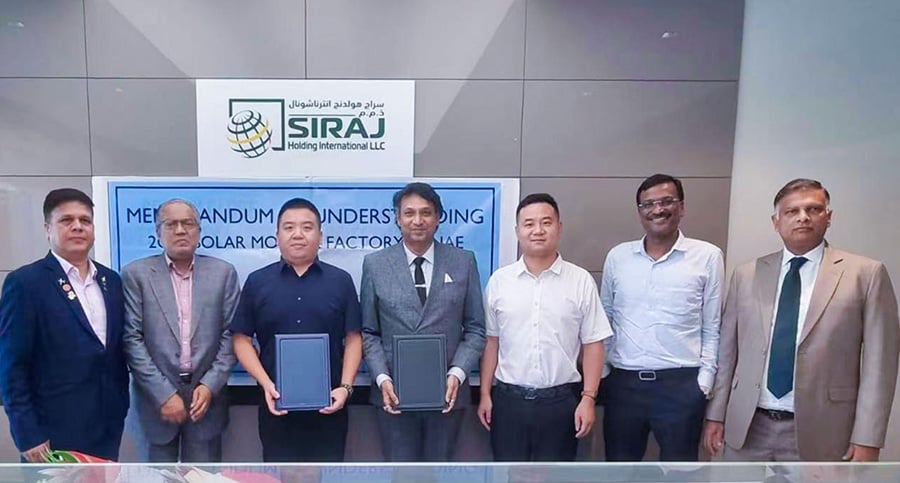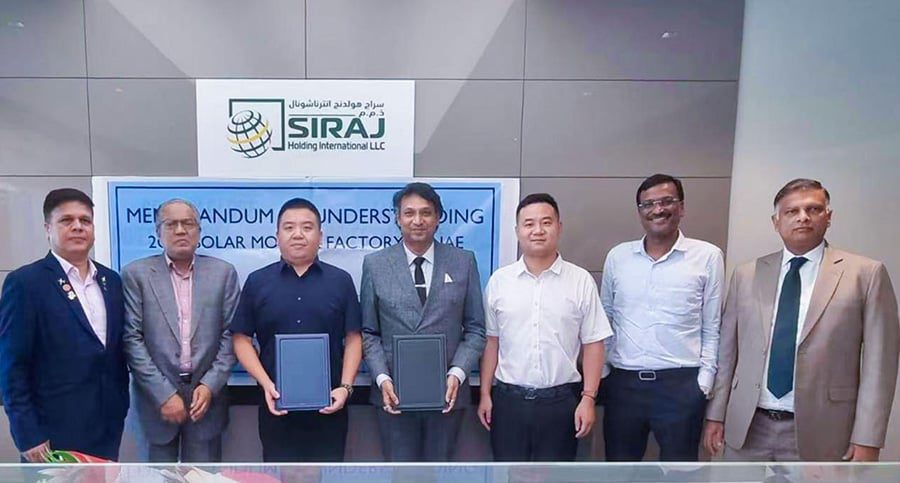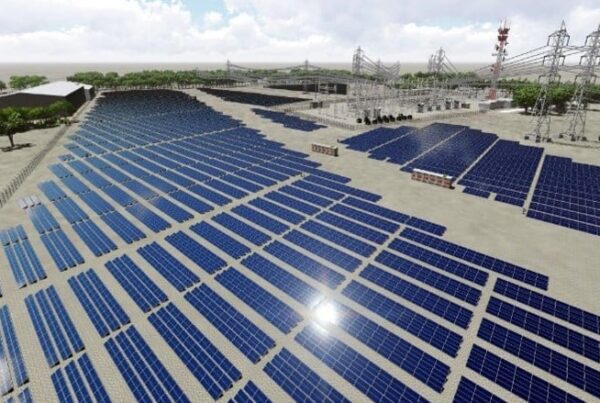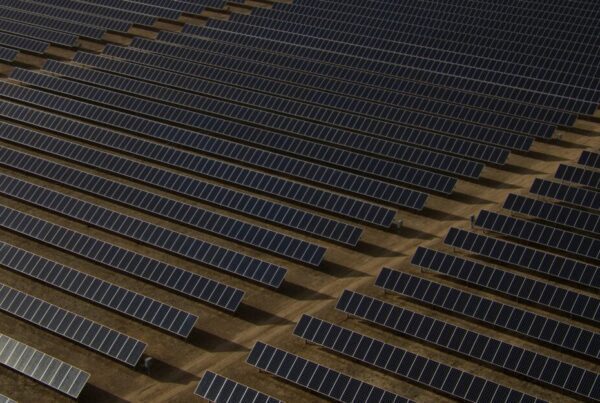
The technology used for the module assembly plant has not been disclosed, but it was noted that it will be “high-efficiency n-type technology”.
Through this partnership, the companies aim to leverage local markets and resources, as the region continues to attract solar manufacturers. Gstar’s expansion in the Middle East, is the latest one from a solar manufacturer in the region.
Middle East manufacturing hub
Last month, Saudi Arabia signed two deals to bring 30GW of domestic manufacturing into the country. The first was signed with Lumetech, a subsidiary of Chinese solar manufacturer TCL Zhonghuan Renewable Energy. This deal will bring domestic manufacturing of ingots and wafers with an annual nameplate capacity of 20GW. The second deal was signed with Chinese solar manufacturer JinkoSolar to build a 10GW TOPCon solar cell and module assembly plant.
Further upstream, GCL Tech announced in June that it will explore potential cooperation opportunities with Mubadala Investment Company, one of the UAE’s sovereign wealth funds, to establish a comprehensive silicon ecosystem of global and regional significance in the United Arab Emirates.
Gstar manufacturing expansion
Gstar’s MOU in the Middle East is the latest expansion of its solar manufacturing operations globally. Earlier this month, the company made progress in its solar cell plant in Thailand and broke ground in a frame facility in Laos.
In Thailand, the company has started production of its Phase One 3GW annual nameplate plate n-type solar cell plant. Gstar aims to reach an annual nameplate capacity of 8GW at this plant.
The first n-type solar cells produced at the plant measure 183.75mm with an efficiency of 25.2%.
Located in the Rubber Industrial Park in Rayong, Thailand, the plant covers a total area of 120,000 square meters with a total investment of US$300 million.
Furthermore, the company broke ground on a RMB500 million (US$70 million) 7GW solar PV aluminium frame and mounting system manufacturing facility in Laos.
Located in the Vientiane Saysettha Development Zone, the company started work on phase 1 at the beginning of this month.
Once operational, the plant will have a nameplate capacity of 30,000 tons, which can meet frame demand for 7GW of PV modules, according to Gstar. Phase II aims to increase the annual nameplate capacity to 12GW.
In the past twelve months, Laos has attracted several companies to build solar manufacturing capacity as the US is scrutinizes several neighbouring Southeast Asian countries more closely.
in March this year, Cambodia-based solar manufacturer Imperial Star Solar launched a silicon wafer manufacturing plant in Laos with a 4GW annual nameplate capacity, while Chinese PV cell and module manufacturer SolarSpace started cell production at a 5GW plant. SolarSpace’s manufacturing plant is located in the same development zone as Gstar’s aluminium frame and mounting system manufacturing facility.
Earlier this year, the company started construction of a 3GW silicon rod and 3GW silicon wafer slicing plant in Indonesia. Production of 182mm and 210mm solar wafers is expected to begin by the end of 2024.





